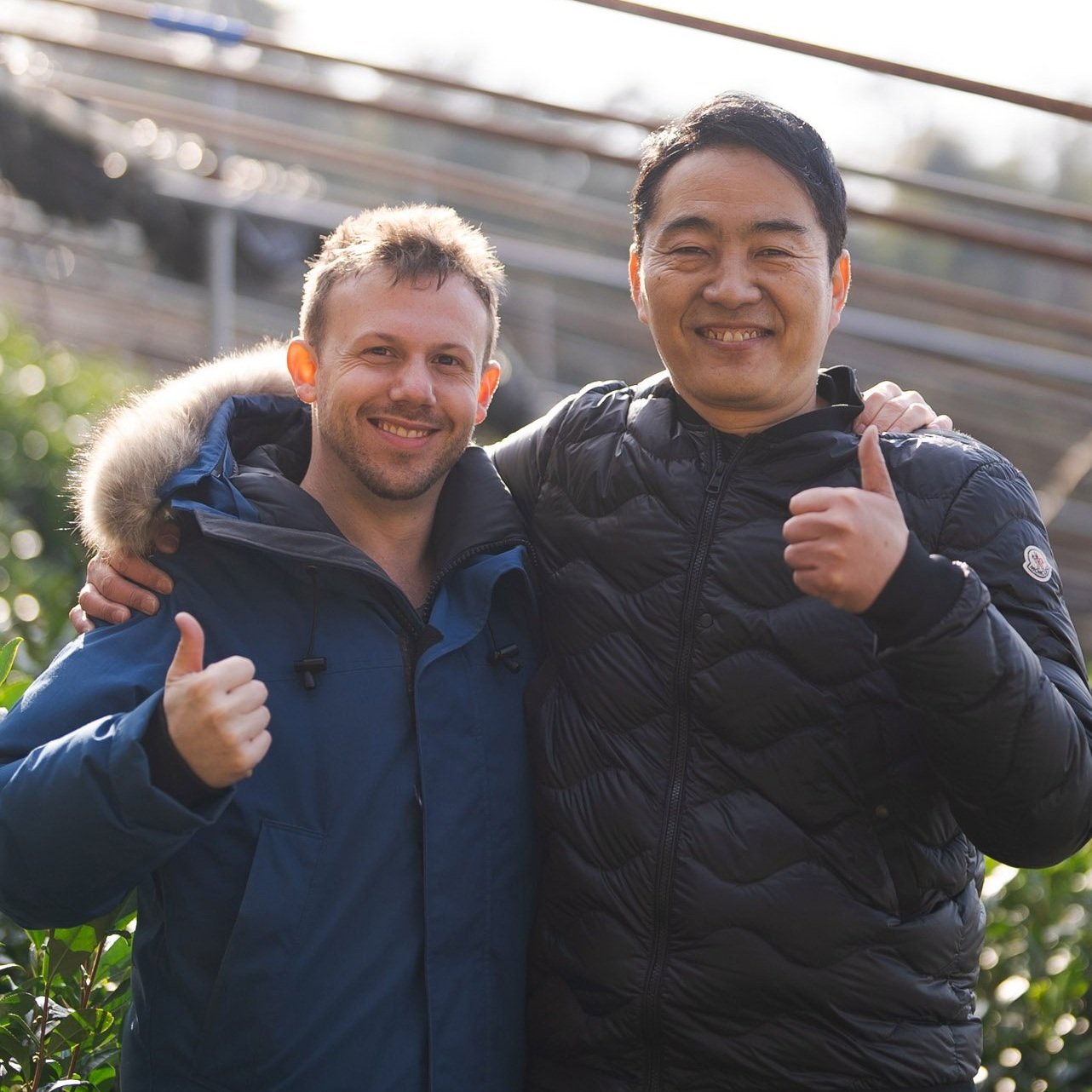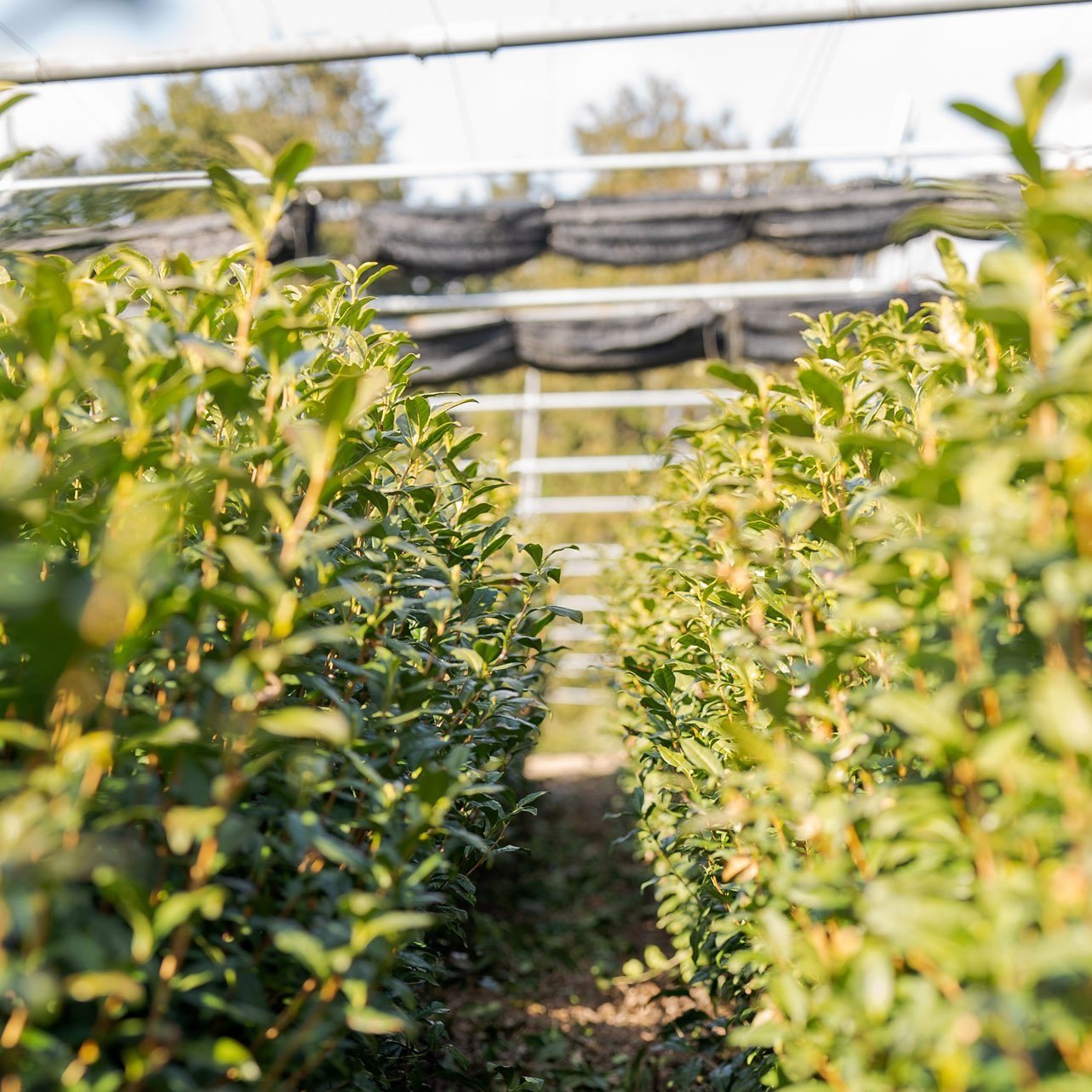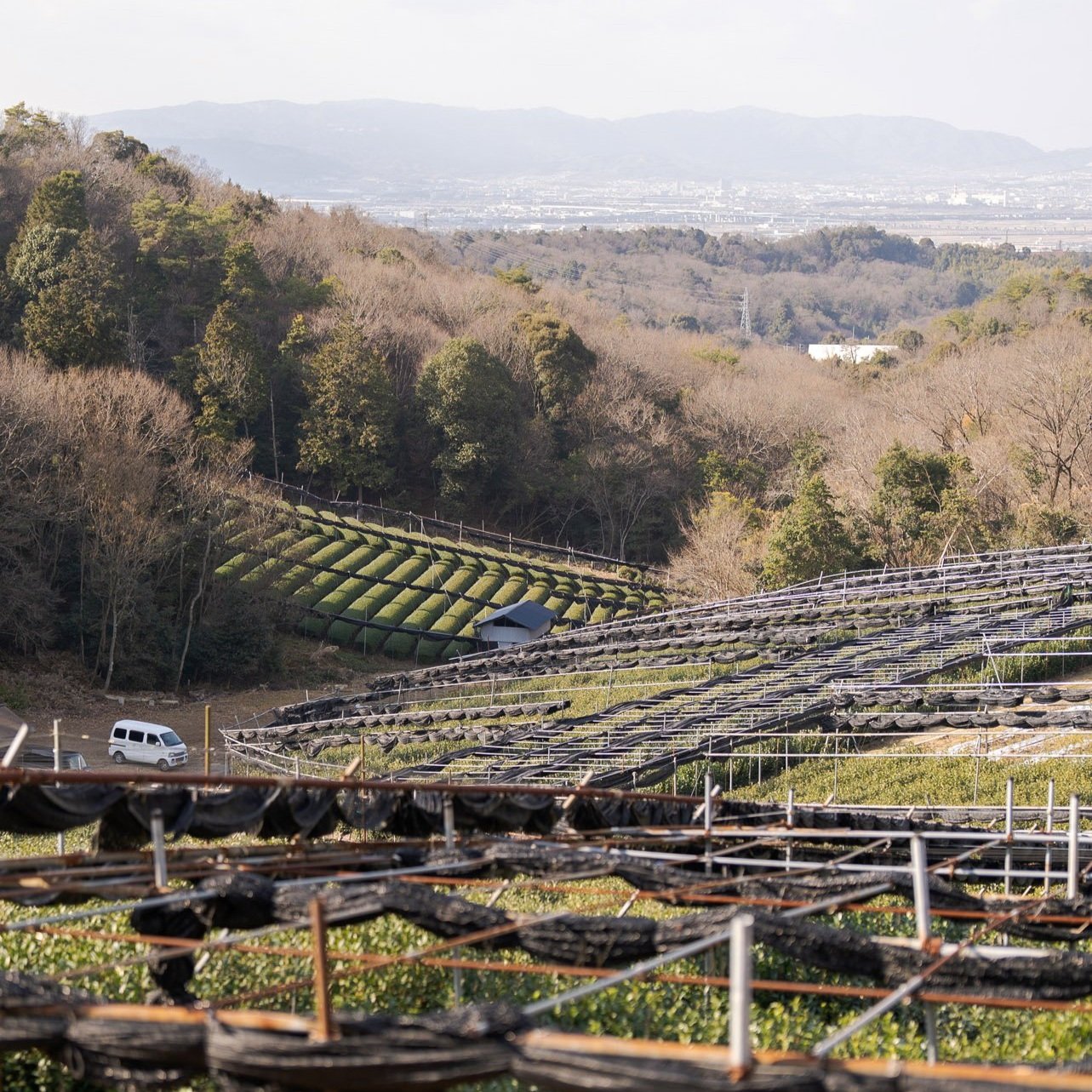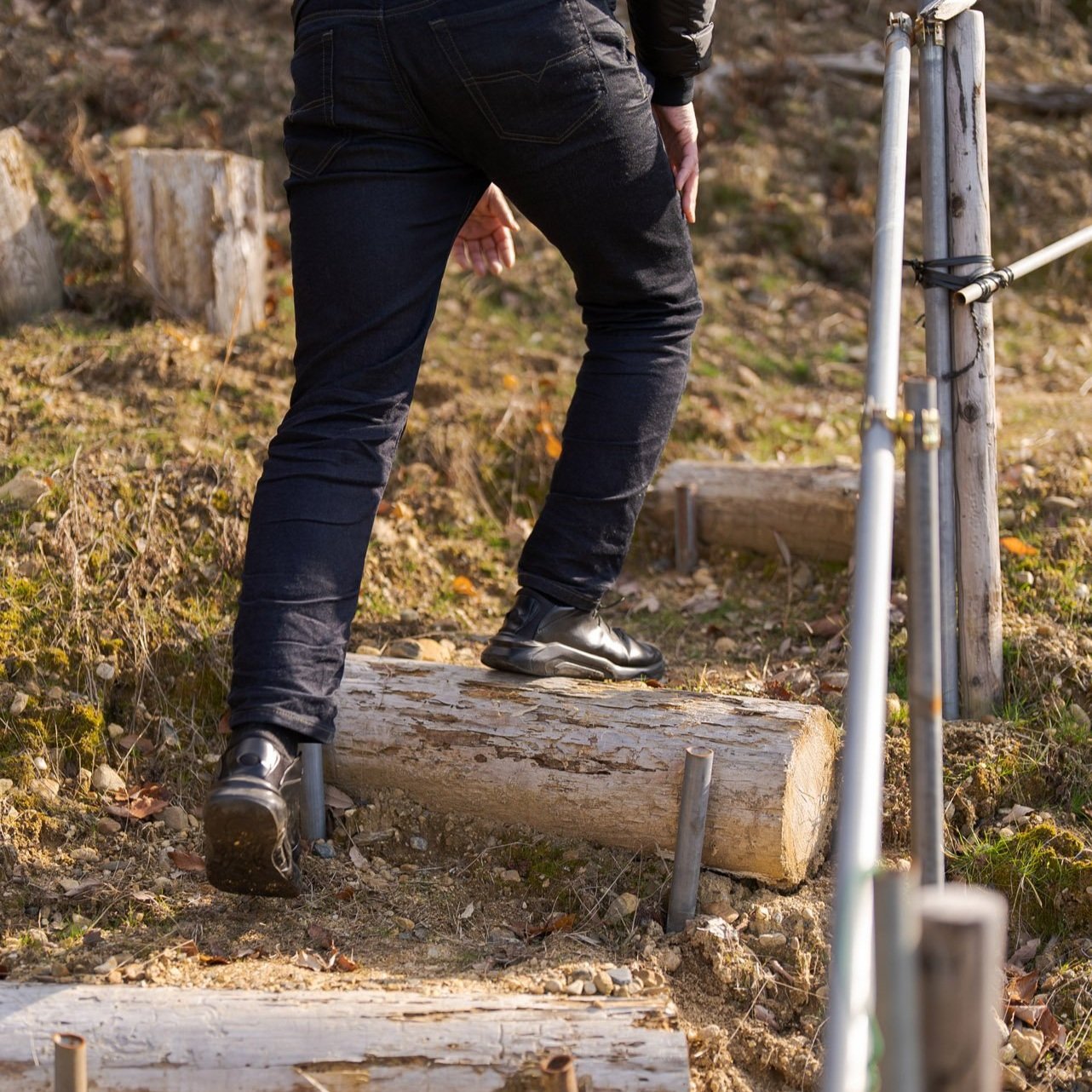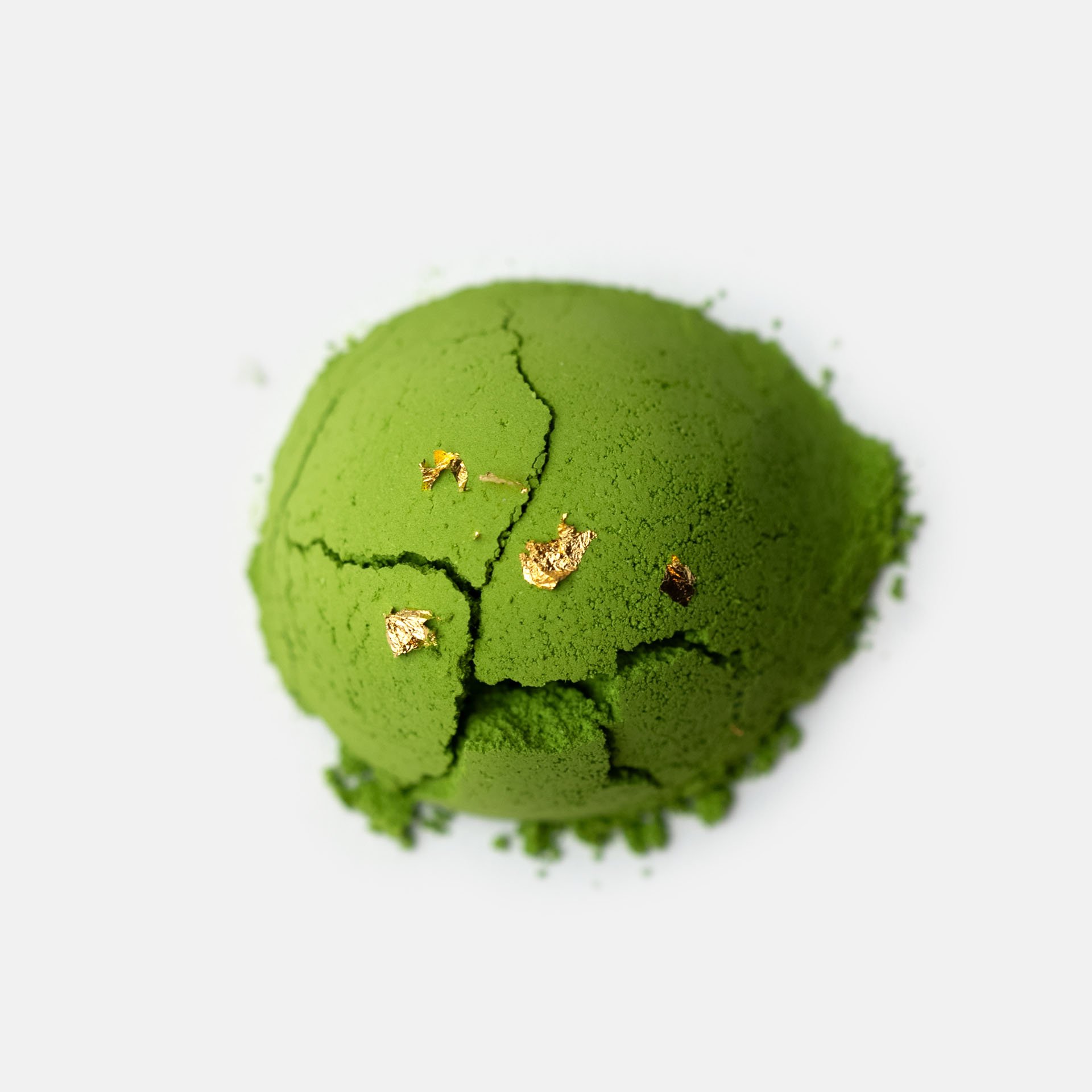About this Matcha
Experience the highly prized, and very rare, Asahi (朝日) cultivar. In texture, it is creamy and rich, perhaps velvety. With a wide, harmonious aroma that invites spring, dark chocolate, and raw nuts. Where Asahi truly shines though, is with the lingering aroma and taste.
When one sips a bowl of Asahi, you’ll notice right away the deep and vast savoriness with undertones throughout the entire experience. Long after you drank, that savoriness will linger on your tongue and stay with you for unexpected durations of time.
In the world of tea, it is said that tea with a good aroma is common. After all, even poorly made tea will smell good. Though having a competent after-taste is very challenging to achieve.
The Matcha of Tsujiさん has been proven to carry the highest level of L-Theanine of any Matcha in Japan—the amino acid responsible for the savory taste. Thus, with this Asahi, we can experience the pinnacle of savoriness: a sublime cultivar, pushed to its absolute potential in the hands of Tsujiさん
-
The birthplace of Japanese tea, Uji, is renowned for conservatively producing tea using time-tested methods handed down from generation to generation. The Asahi (朝日) cultivar is perhaps one of the most prized varieties across Japan.
Known for its excellent color and rich flavor, Asahi fetches a higher price on the market due to its more difficult cultivation requirements. This Asahi (朝日) comes from the farms of Tsujiさん, a 5th generation tea farmer who holds an international reputation for his exceptional tea, especially, Asahi.
He holds multiple tea awards including the highly coveted Prime Minister’s award for agriculture in 2017. Tsuji-san’s expertise has resulted in his teas having the highest level of L-Theanine among any of the producers in the country. L-Theanine is an amino acid that contributes both to the savory taste in Matcha, as well as many of the calm-inducing psychoactive effects.
Needless to say, we are deeply honored to present to American customers Tsuji-san’s Asahi, fresh ground by Ooika right here in the United States.
-
To make a fresh and smooth bowl of Usucha or Koicha, follow our brewing instructions.
-
Long-term Storage: Store unopened Ooika Matcha in the refrigerator. Consume within 6 months.
Room-Temp Short-term Storage: Store opened Ooika Matcha in a cool, dark place away from sunlight. Consume within 3 months.
Refrigerator Short-term Storage: Opened Matcha can be stored in the refrigerator to help maintain freshness, however, the Matcha is at risk of condensation when cooler than ambient air. For this reason, if you choose to store an opened Matcha in the refrigerator, be sure to take the Matcha you need and then immediately place it back in the refrigerator to minimize exposure to the warm air.
Ochairinikki (御茶入日記)
Category Green tea (お茶) |
Subcategory OISHITACHA (おおいしたちゃ) |
Grade Indigo (Beyond Ceremonial) |
Terroir Shirakawa, Uji, Kyoto, Japan |
Vintage 2024 |
Cultivar Asahi (朝日) |
Harvest Method 100% handpicked (手摘み, Tezumi) |
Shading Style Kaireisha (Double-net cold gauze type, 95% light-blocked) |
Shading Duration 58 days |
Milling Ishi-Usu (石臼) Stone-Milled by Ooika |
Packaging Cold-stored, oxygen-free bag |
Use Usucha, Koicha |
Tsujiさん
Tsujiさん visits his tea farm twice a day, every day.
He checks the leaves through the garden, looking for the sheen.
Dull leaves indicate the plant needs more fertilizer.
“I only use fertilizer I can eat. Soba and herring.”
The Pinnacle of Uji
We hike up a path at the far end of Tsuji’s farm.
There’s a bench made of an old log we sit on and see the whole tea garden.
In the distance, the entire city of Kyoto is visible - even here in Uji, nearly an hour away by train.
Visiting Shirakawa, Uji
For Matcha, no Terroir in the world exceeds Uji. Despite having worldwide recognition, the actual quantity of tea from Uji is impossibly small, and shrinking every year as development continues.
And in fact, the total demand for Uji Matcha far exceeds the supply, by orders of magnitude. Most Matcha labeled as being from “Uji” is, confusingly, not. Thus the vast majority of “Uji” Matcha is not grown in Uji…
Here’s why: any tea that’s not grown in Uji village (such as nearby in Wazuka), but is refined or processed within Uji village may legally be called “Uji” tea.
A subtle distinction is made in Japan by saying “Cha No Uji (茶の宇治)” versus “Ujicha (宇治茶.)” Cha No Uji (茶の宇治) literally translates as “Tea from/of Uji”, versus just “Uji tea.”
Thus, experiencing true Cha No Uji (茶の宇治) Matcha from/of Uji is exceedingly rare.



